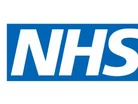Strike means thousands of operations will be cancelled

Thousand of operations, appointments and diagnostic tests that are due to take place on Wednesday have been cancelled as a result of the planned public sector strike in the UK.
It is estimated that on 30 November, approximately 400,000 nurses, paramedics, physiotherapists and healthcare assistants will join together to protest about proposed changes to public sector pensions.
Although healthcare and hospital managers are adamant critical and emergency care will not be affected by the strike, 60,000 operations and appointments will need to be rescheduled in England alone.
The NHS has also said 999 ambulance services will be unaffected and calls will still be answered, although they are asking people to only call in a genuine emergency.
To read the latest edition of Healthcare Global, click here
- NICE recommends anti-clotting drug Eliquis to patients
- Church claim that God can cure HIV causes six deaths
- New cervical cancer vaccine protects against genital warts
Maternity units will also remain open and patients will be able to access vital care and services such as chemotherapy or dialysis.
NHS leaders have said they are preparing for Wednesday as if it was a bank holiday or an event like Christmas.
Estimations suggest the strike will see the NHS carry out 20 percent less work on Wednesday, a result of a fifth of NHS employees refusing to attend work on that day.
Although a fifth of the NHS workforce is a large proportion to strike, the UK’s three main medical unions – British Medical Association, Royal College of Nursing and Royal College of Midwives – have said they will not be taking part.
Those healthcare workers that are considering joining the strike action are also being asked to consider what affect the event will have on patients.
UK Health Minister Andrew Lansley said: “I would ask staff to consider carefully whether going on strike is the right thing to do.”
On the other hand, the Head of Health at Unison, Christina Nacanea, is confident the workers are mindful of their actions.
She said: “Most of them will first and foremost ensure that there is adequate cover is in place and that patients' safety is not compromised.
“But by the same token they will be wanting to demonstrate their opposition to what the government is trying do to their pensions.”
Our magazine is now available on the iPad. Click here to download it.
